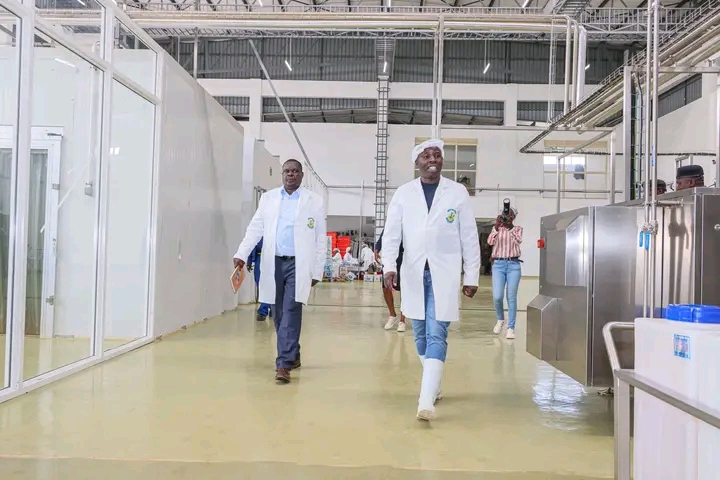

The Nandi government has set up a Sh700 million milk processing plant in Kabiyet.
The processor has not only breathed life into the sleepy market, but also awakened the dormant dairy farming subsector in the region.
It took the Nandi government more than five years to complete the facility.
Farmer Paul Kerich said the plant is a great milestone to the value addition chain and it is expected to revitalise the dairy subsector, which has been plagued by production and market challenges for years.
"Dairy farming has been one of the neglected agricultural practices in the region and unscrupulous traders have been purchasing milk at poor prices as farmers lacked alternatives," he said.
"The facility will bring a turn-around to the abandoned dairy farming. Residents want good prices and a conducive economic environment for milk production."
Nandi is considered having progressive animal production in the North Rift, with a population of more than 21,000 smallholder dairy farmers.
Mosop, Chesumei, Emgwen, Nandi Hills and Aldai subcounties are among areas nestling excellent dairy livestock for quality milk, according to the county department of agriculture.
However, for over two decades, the cost of production and fluctuating milk prices have choked the sector and many farmers have turned their focus on subsistence dairy farming.
Hefty taxes initially imposed by the government on animal feeds was counterproductive to milk production.
The ripple effect sent the Kenya Creameries Company (KCC) to the sick bed owing to shortage of milk, corruption and management issues.
This opened a leeway for exploitative private investors and traders that bought milk at low prices, thus making dairy farming unprofitable.
The milk processing plant is, however, faced by a myriad of challenges including insufficient extension services, shortage of milk and poor farming techniques.
Elvans Lelei, a dairy farmer in Mosop, said lack of capacity building on animal husbandry is a major setback to achieving quality cows.
"We have had artificial insemination services and end up with undesired livestock in our farms. The subsidised AI in most cases produce more bulls than heifers, and this has slowed down the multiplication of the dairy livestock," he said.
Lelei said they lacked know-how to enhance animal production due to insufficient extensional services tailored for dairy farmers.
The milk factory is expected to process an estimated 200,000 litres per day, which is way above the total production of milk in the region.
According to the county department of livestock, the majority of smallholders produce below 10 litres of milk and a total of close to 100,000 litres of milk reach the market. It is mostly supplied to eateries and direct consumers.
Lelei said the county will have to outsource milk from neighbouring counties to sustain the plant.
"We also need financial incentives as farmers to spur the dairy economy. This will include subsidies and revival of cooperative societies to consolidate milk production," he said.
The milk factory is under management by a consortium of local cooperative societies in the community that co-opted private stakeholders for capacity building to run the facility.
Agriculture executive Kiplimo Lagat said 43 cooperative societies have been revitalised for consolidation and consistent supply of milk.
"We are encountering teething problems but they will be resolved in the long run. We are looking forward to obtaining milk from our local farmers through their respective cooperative societies," he said.
Lagat said more cooling plants would be provided for the farmers to prolong milk shelf-life in collection centres.
He said the county has also prioritised potential milk production through support from the National Agriculture Value Chain Development Project (NAVCDP), which has strengthened funding of milk farmers under Saccos and cooperative movement.
Despite the challenges facing dairy farmers, Lagat said the county has made significant strides to address those setbacks by training agriculture extension officers to help the farmers on best milk production practices. They are also acquiring high milk heifer breeds and constructing and renovating cattle dips for disease management.
While addressing farmers during Ushiraka Day in Kabiyet, Governor Stephen Sang termed the factory a milestone his administration has achieved as far as value addition is concerned.
"We are looking forward to exporting milk by-products to the international market. And this will boost earnings to our farmers," he said.












